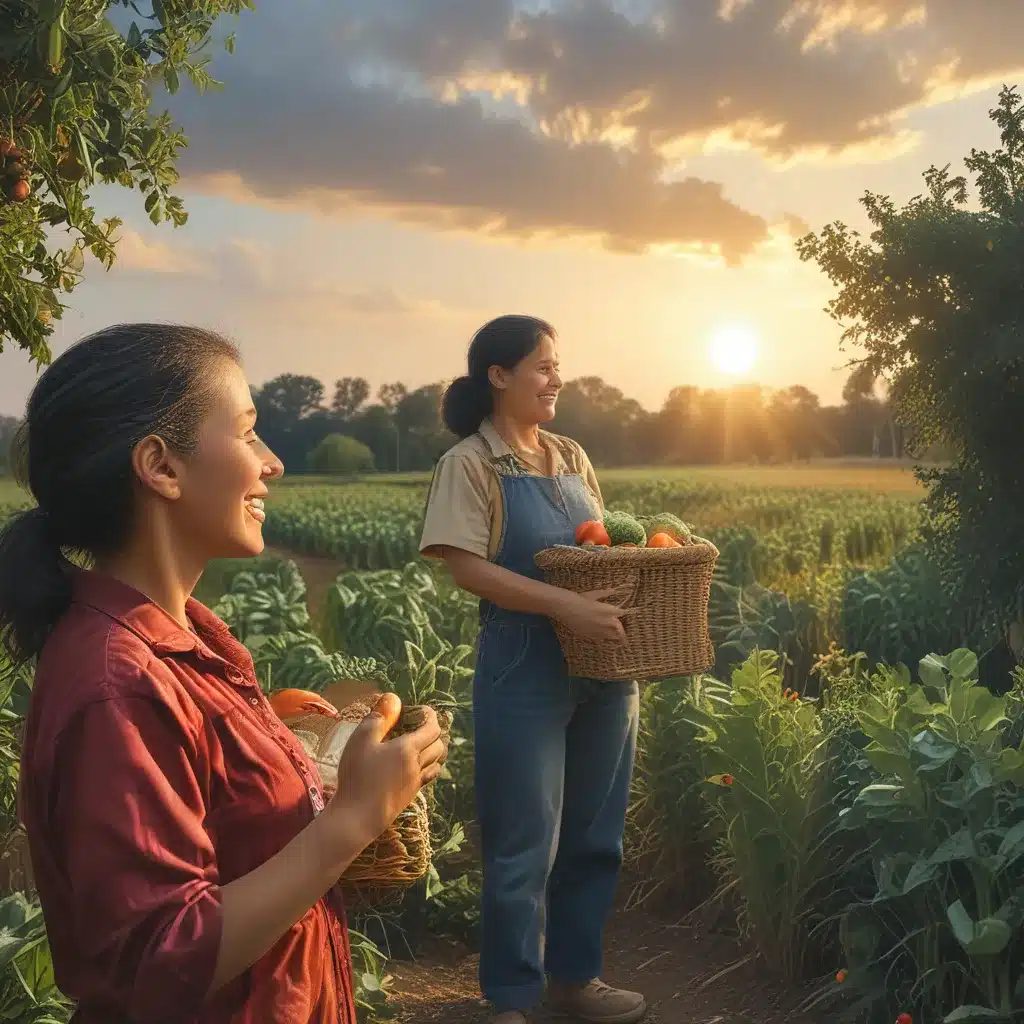
Sowing the Seeds of Change
As I stroll through the vibrant farmer’s market, the air is alive with the aroma of freshly picked produce and the laughter of the community. It’s here, amidst the colorful stalls and friendly faces, that I’ve discovered the transformative power of community-supported agriculture (CSA). What started as a simple desire to connect with my food source has blossomed into a profound appreciation for the way these programs are reshaping our food systems and our communities.
Thornapple CSA, the community-driven organization I’ve come to cherish, is just one example of how CSAs are redefining the way we think about food. By fostering a direct relationship between farmers and consumers, these programs are not only nourishing our bodies, but also our souls. As I dive deeper into the world of CSAs, I’m continually amazed by the ripple effects they have on the environment, the local economy, and the overall well-being of the people they serve.
Cultivating Sustainable Solutions
In a world grappling with the devastating impacts of industrialized agriculture, CSAs offer a refreshing alternative that prioritizes sustainability and environmental stewardship. Modern eco-agriculture practices, such as conservation tillage, crop rotation, and organic farming, are at the heart of these community-driven initiatives. By embracing these techniques, CSA farmers are not only producing nutrient-rich, pesticide-free foods, but they’re also actively restoring the health of the land and nurturing the delicate balance of our ecosystems.
As I reflect on the impact of these practices, I’m reminded of a conversation I had with one of the farmers at Thornapple CSA. “We’re not just growing food,” she told me, her eyes sparkling with passion. “We’re growing hope – hope for a future where our children and grandchildren can thrive in a healthy, vibrant environment.” It’s a sentiment that resonates deeply with me, as I witness firsthand the transformative power of these sustainable farming methods.
Strengthening Local Economies
The benefits of CSAs, however, extend far beyond the environmental realm. These programs are also revitalizing local economies, empowering small-scale farmers, and fostering a sense of community that is often lacking in our fast-paced, globalized world.
By cutting out the middleman and establishing direct relationships between producers and consumers, CSAs ensure that a greater portion of the profit stays within the local community. This not only supports the livelihoods of hardworking farmers, but it also encourages the growth of ancillary businesses, such as local food processors, artisanal producers, and small-scale distributors.
Homesteads for Hope, a CSA program I’ve had the pleasure of engaging with, exemplifies this economic empowerment. Through their innovative model, they’ve created opportunities for underserved individuals to establish their own small-scale farming operations, providing them with the resources and support they need to thrive. This, in turn, has had a ripple effect throughout the community, strengthening the local food system and fostering a sense of pride and self-sufficiency.
Cultivating Community Connections
But the true magic of CSAs lies not just in their environmental and economic impact, but in their ability to bring people together. These programs have the power to transform isolated individuals into a vibrant, interconnected community, united by a shared passion for wholesome, locally-sourced food.
As a member of Thornapple CSA, I’ve experienced this firsthand. Each week, as I eagerly await the arrival of my vegetable-filled box, I find myself looking forward to the chance to connect with my fellow members. Whether it’s swapping recipes, sharing gardening tips, or simply exchanging stories over a shared meal, these interactions have fostered a sense of belonging that extends far beyond the boundaries of the program itself.
Moreover, the sense of community fostered by CSAs extends beyond the members themselves. By supporting local farmers and connecting consumers directly with the source of their food, these programs are helping to bridge the gap between urban and rural communities, breaking down barriers and fostering a deeper understanding of the vital role that agriculture plays in our lives.
Reaping the Rewards of Mindfulness
As I delve deeper into the world of CSAs, I’m struck by the way these programs encourage a more mindful and intentional approach to food. Gone are the days of mindlessly grabbing produce off the supermarket shelves, oblivious to its origin or the hands that tended to it. Instead, CSA members become active participants in the growing and harvesting process, imbuing each meal with a newfound sense of appreciation and gratitude.
By receiving a weekly box of freshly harvested, seasonal produce, CSA members are forced to slow down, plan their meals, and experiment with unfamiliar ingredients. This, in turn, cultivates a deeper understanding of the rhythms of nature and the importance of eating in harmony with the changing seasons. As I’ve discovered, this mindful approach to food not only nourishes the body, but it also nourishes the soul, fostering a sense of connection and well-being that extends far beyond the kitchen.
Sowing the Seeds of a Better Future
As I reflect on my journey with CSAs, I’m filled with a profound sense of hope and optimism. These community-driven initiatives are not just transforming the way we think about food – they’re transforming the way we think about our role in the world. By supporting local farmers, embracing sustainable practices, and fostering a sense of community, CSAs are demonstrating that a more equitable, resilient, and environmentally-conscious future is within our reach.
As Tiwari eloquently states, “the future of farming goes hand in hand with the future of the earth.” And as I witness the transformative power of CSAs, I’m more convinced than ever that by cultivating a deeper connection to our food and our land, we can build a brighter, more sustainable tomorrow – one bountiful harvest at a time.



